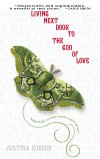And from a surprising quarter. Malcolm Gladwell weighs in on the Viswanathan Affair:
After the story breaks, McCafferty’s publisher starts huffing and puffing and threatening legal action, Viswanathan apologizes and goes on the Today show, her publisher Little Brown (which is incidentally my publisher too) withdraws her book from the market, Harvard launches an "investigation" and Viswanathan gets pummeled by a hundred angry columnists, pundits and bloggers.
Can someone tell me why? This is teen-literature. It’s genre fiction. These are novels based on novels based on novels, in which every convention of character and plot has been trotted out a thousand times before. If I wrote a detective story, set in 1930’s Los Angeles, about a cynical, hard-bitten private eye, with a drop dead gorgeous secretary and a series of lonely housewife clients, would anyone bat an eye? Of course not. It may be a stolen premise. But we accept that within the category of genre fiction a certain amount of borrowing of themes and plots and ideas is acceptable—even laudable.
Whoa. Again with the generalizing.
I am really not liking all the commentating on "teen fiction" by people who clearly have no idea just how challenging and diverse the field really is at the moment. Jeez. Knock it off. Do your homework.
Not to say that I don’t think there’s a legitimate point buried in his post about genre conventions, but please, do not imply that all teen novels or all novels within any genre are the same old, same old. There’s a difference between using (or playing with) genre conventions and plagiarism. A big one.
If Viswanathan directly borrowed passages whole-cloth from the McCafferty book, no matter what its quality, then Gladwell’s argument seems irrelevant. Plagiarism shouldn’t be about whether the product is high quality enough to care about. It is the act itself that is problematic and offensive. Does the reaction fit the supposed crime in this case? Maybe not, but that’s a symptom of bad timing in my opinion. This particular story popped up just in time to continue a news cycle that was already gristing.
I also have to disagree with Gladwell’s assertion that:
But once we have conceded that in genre fiction its okay to borrow themes, why do we get so upset when genre novelists borrow something a good deal less substantial—namely phrases and sentences?
Because phrases and sentences are execution. Even in the lowly genres. (That is sarcasm, folks; that’s what really galls me about this — the base assumption that genre novelists are something else, something lesser.) They are what the blood and sweat goes into; they belong to the writer who generates them. Execution is everything in storyland. In writingland.
May sentences by different authors sometimes echo each other with no sinister cause? Sure. No harm, no foul. But, at base, plaigiarism is stealing something of value and passing it off as own’s own and that something belongs to another writer. That’s serious business and should be taken seriously.
And then there’s this, when Gladwell starts in on the actual comparison of the passages in this case:
My question is whether it is possible to write a teen-lit novel without these sentences:
From page 7 of McCafferty’s first novel: “Bridget is my age and lives across the street. For the first twelve years of my life, these qualifications were all I needed in a best friend. But that was before Bridget’s braces came off and her boyfriend Burke got on, before Hope and I met in our seventh-grade honors classes.
From page 14 of Viswanathan’s novel: “Priscilla was my age and lived two blocks away. For the first fifteen years of my life, those were the only qualifications I needed in a best friend. We had first bonded over our mutual fascination with the abacus in a playgroup for gifted kids. But that was before freshman year, when Priscilla’s glasses came off, and the first in a long string of boyfriends got on.”
Calling this plagiarism is the equivalent of crying "copy" in a crowded Kinkos.
To answer the question posed: Um, that would be an unqualified YES! I don’t think this is great writing, and I read a LOT of teen fiction with great writing. And guess what? With unique voices and superior craft as well. So, yes, you can write "a teen-lit novel" without these sentences. Cute.
I don’t really care enough about the whole did she or didn’t she in this particular case to learn enough to come up with my own answer to did she or didn’t she. What I do care about is the uninformed denigration of the entire field of teen literature. KNOCK IT OFF.

